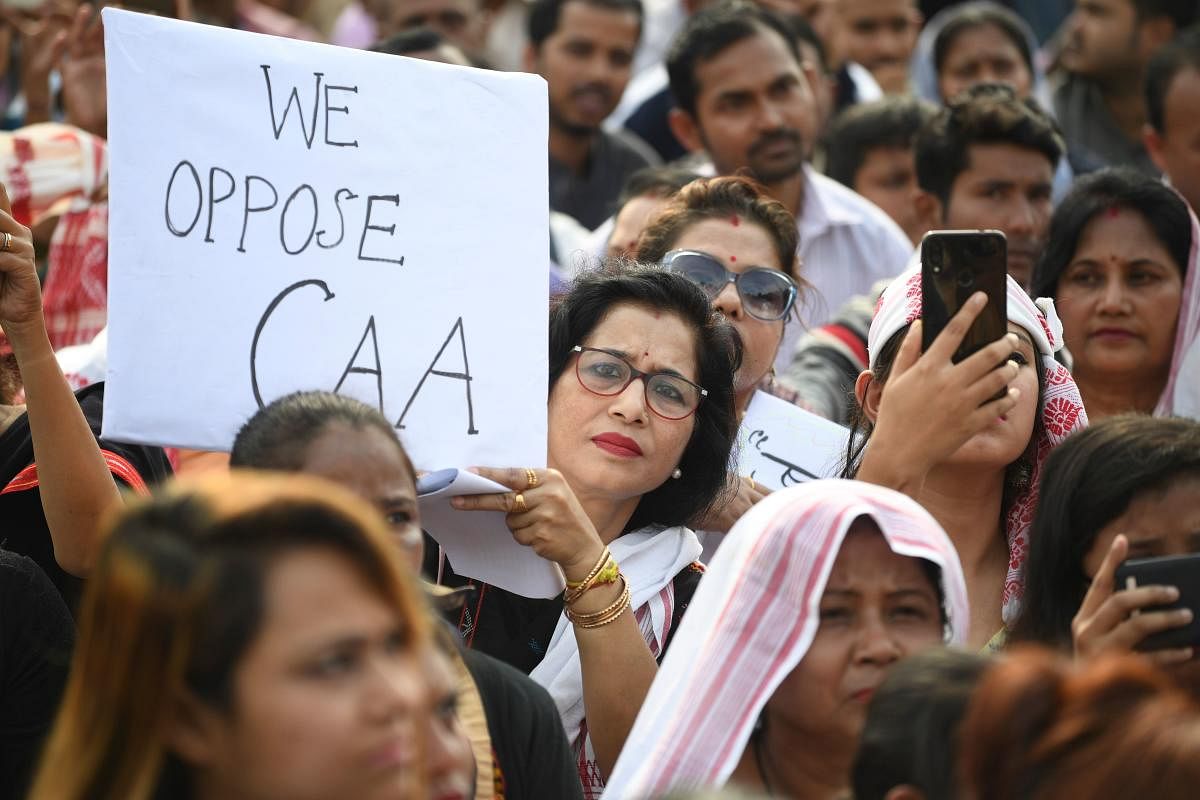
Touted as a humane gesture to help lakhs of immigrants from Pakistan, Bangladesh and Afghanistan, the controversial Citizenship (Amendment) Act (CAA) will benefit only 31,313 people from non-Muslim minorities. This is what a Joint Parliamentary Committee (JPC) report says, based on an Intelligence Bureau (IB) input.
The CAA has sparked nationwide protests, triggering widespread debates on citizenship and the constitutional validity of the Act. Justifying the legislation in the Rajya Sabha, Union Home Minister Amit Shah had claimed that it would accord citizenship to lakhs who faced religious persecution in the three Islamic countries.
However, the JPC, which submitted its report in January 2016, had cited the IB’s response to a specific query on the matter. Its question was this: How many persons belonging to minority communities would benefit from the proposed Amendment on the basis of religious persecution.
The Bureau’s response: “As per our records, there are 31,313 persons belonging to minority communities (Hindus - 25447, Sikhs - 5807, Christians - 55, Buddhists - 2 and Parsis - 2) who have been given Long Term Visa on the basis of their claim of religious persecution in their respective countries and want Indian Citizenship. Hence, these persons will be immediate beneficiaries.”
The JPC then placed another query: What about people from minority communities who came to India due to religious persecution, but did not declare so at the time of their arrival? The IB’s position was clear, that such people had to prove ‘religious persecution’ as a factor.
But the Bureau hastened to add: “If they had not declared so at that time of their arrival in India, it would be difficult for them to make such a claim now. Any future claim will be enquired into, including through R&AW (Research and Analysis Wing) before a decision is taken.”
As confirmed by the IB Director, the grant of citizenship to the identified 31,313 would be purely on the grounds that they had all applied under the ‘religious prosecution’ category. The recently passed CAA makes it easier for them.
However, on others outside the category, the IB indicated that there may be many who have already taken citizenship by various means.
“They might have obtained passport, ration card. All other documents they might have obtained and they might have already registered themselves in the voters' list. So, for all practical purposes, they are already citizens of this country.”
To identify if their citizenships were obtained by fraudulent means, the IB director drew attention to Tribunals.
“That is a different issue altogether. The Bill is for those who have applied and who have claimed that they have been persecuted in their respective country.”